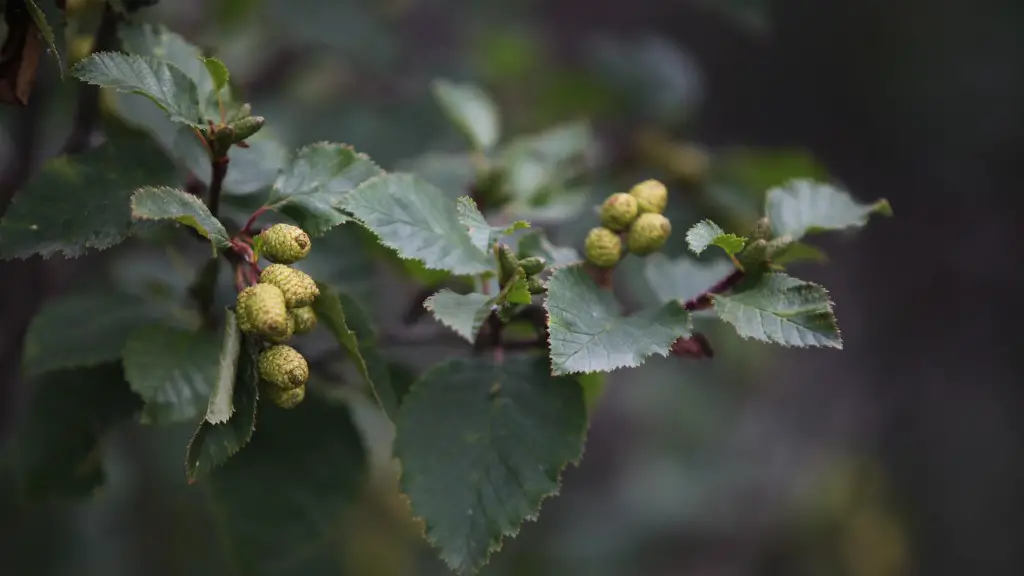Citrus trees are a popular choice for indoor cultivation because of their fragrant blossoms and fruits. The lemon tree is no exception. Although possible, it is more difficult to grow a lemon tree indoors than other citrus trees because lemon trees need full sun and high humidity. If you live in an area with cold winters, it is best to grow your lemon tree in a greenhouse.
A lemon tree can survive indoors if it is kept in a bright location and is watered regularly.
Should I bring my lemon tree inside?
Unless you live in a zone with year-round warm weather, bringing your lemon trees indoors for the winter is essential for their survival. Indoor lemon trees are easy to care for, bring a welcome touch of green to your winter, give off a sweet, fragrant aroma, and – best of all – bear fruit!
Citrus trees need a bit of extra care during the winter months to stay healthy and happy. Make sure to lower the room temperature to around 58-68 degrees, as they go semi-dormant during this time. Consider adding a supplemental light source, and be sure to rotate the plant regularly so all sides get an equal amount of light. Fertilize monthly, and water when the soil is dry to the touch. Keep an eye out for pests, and treat immediately if you see any. With a little TLC, your citrus tree will thrive all winter long.
How long does it take for an indoor lemon tree to bear fruit
If you’re thinking of planting a lemon tree, remember that it may not bear fruit for the first few years. Most lemon trees take three to four years to start producing fruit. So be patient and enjoy the process!
Most lemon tree growers need to water their potted plant once every 3-7 days. Beware that the frequency with which you need to water your lemon tree may change over time. Factors such as plant size, temperature, and humidity can affect the frequency with which you need to water.
Do indoor lemon trees attract bugs?
Citrus plants are known to attract bugs, which can be more of an issue when the plants are indoors. To help reduce the number of bugs attracted to your citrus plants, try to keep them well-watered and free of any decaying matter. You can also try using a citrus-scented insecticide to help keep the bugs away.
Lemon trees do best in bright, well-ventilated spaces that are away from any central heating or cold drafts. Unheated conservatories and hallways are perfect locations. Your tree will need a good amount of sunlight each day, so put it in a location that gets at least six hours of good filtered sunlight.
Do potted lemon trees go dormant?
Citrus trees require more light and humidity than many other plants during the winter, as they do not go dormant. Although their growth will slow, they still need sufficient light and humidity to survive the winter.
Coffee grounds can be used to fertilize lemon trees and improve soil tilth, but only after the coffee grounds have been fully decomposed. Composted coffee grounds contain high doses of nitrogen that speed up the growth and development of the lemon tree.
How cold is too cold for a potted lemon tree
Lemon, lime and citron trees are the least cold tolerant and will suffer at least some damage when temperatures drop below 25ºF. Early ripening varieties can also be planted, so that the fruit may be harvested before cold weather arrives.
Most citrus varieties are self-fertile, so only one tree is typically needed for fruit production. On average, fruit bearing begins when the trees are between 3 and 6 years old. However, exact timing will depend on the type of citrus, the cultivar, your climate, the health of the plant and its care, and other factors.
How long do potted lemon trees live?
Lemon trees are lovely, fragrant additions to any home. With proper care, they can live for over 100 years! Here is a brief overview of the lemon tree life cycle:
The lemon tree begins its life as a seed. Once the seed germinates, it produces a small plant. After about 3-4 years, the plant produces its first flowers. These flowers eventually turn into lemons.
Lemon trees typically bear fruit for many years, but as they age, their production may decline. With proper care and disease prevention, however, lemon trees can enjoy a long and healthy life.
An indoor lemon tree is a great way to enjoy fresh fruit year-round. Lemons are among the easiest citrus to grow indoors and the trees make thoughtful gifts. You provide the light, water and fertilizer, and they offer beautiful, fragrant flowers and homegrown lemons.
How do you take care of a potted lemon tree
If you live near the beach or in a milder climate, you want to keep your home as warm as possible. This helps to keep the sand and salt from the air from damaging your home.
This is an all-purpose insecticide that can be used on fruit, citrus and palm trees. It is effective against a wide range of pests, including beetles, moths, ants and caterpillars.
Do lemon trees need full sun?
Lemon trees need full sunlight to grow, and while they can tolerate poor soils, most prefer well-drained slightly acidic soils. They should be set slightly higher than the ground to ensure good drainage.
Citrus plants are great for purifying the air in your home, and they also provide fresh oxygen. They can help to remove pollutants from the air, and they’re much cheaper than buying special air filters.
Can you spray soapy water on citrus trees
Spraying soapy water onto a leaf can be a useful way to help nutrients adhere to the leaf surface. However, it is important to use a biodegradable soap in order to minimize environmental impact. Additionally, soapy water can drown pests that are attacking the tree, but it will not fix all the issues that the pest has caused.
Heavy leaf drop on lemon trees can be caused by improper care, disease, or fungi. Some leaf drop during winter and early spring is normal, but if your tree is losing a lot of leaves, it could be a sign of a problem. Be sure to check for signs of disease or pests, and provide your tree with the proper care to prevent leaf drop.
Final Words
No, a lemon tree cannot survive indoors.
A lemon tree is a symbol of freshness and can thrive indoors with the proper care. Give your lemon tree plenty of sunlight and water, and drainage to prevent the roots from rotting. Fertilize your lemon tree regularly to keep it healthy and bearing fruit. Prune your lemon tree to encourage new growth and to keep it from becoming overgrown. With a little bit of effort, you can enjoy the fresh smell and taste of lemons all year round.




